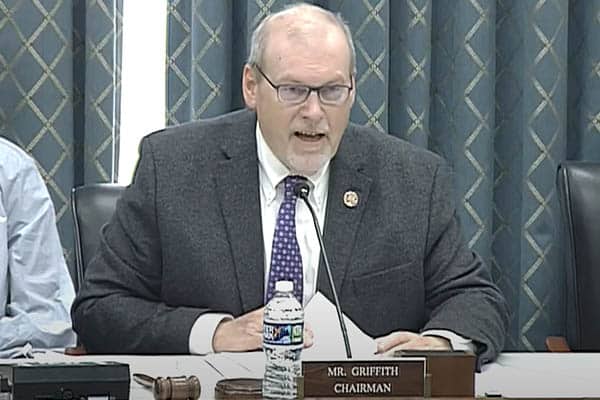Energy and Inflation
 As December begins, Virginians have begun to experience cold winter weather once again. Lows so far have reached the teens in some areas and that means it’s time to crank up the heat in our homes to stay warm.
As December begins, Virginians have begun to experience cold winter weather once again. Lows so far have reached the teens in some areas and that means it’s time to crank up the heat in our homes to stay warm.
Unfortunately, for many, turning on the heat comes with extra costs these days. Due to energy policies enacted in the Obama years and continued during the Biden Administration, the cost of energy has been driven up. These increased energy costs have in turn been one of the major contributors to the high inflation we’ve experienced in the past few years.
Republican members of the U.S. Senate Joint Economic Committee recently analyzed Consumer Price Index and Consumer Expenditure Survey data and announced that, due to inflation, the typical American household must now spend an additional $11,434 annually in order to have the same standard of living as they had in January of 2021.
This is unacceptable! How many Americans have an extra $11,000 to spend the same items they normally buy?
Americans all around the country are feeling the burn from inflation.
According to an October AP/NORC poll, 69% say their household expenses have risen over the last year, but only 23% have seen their income increase during the same period.
And it makes sense why Americans are feeling this way. According to Bureau of Labor Statistics (BLS), since President Biden took office, the consumer price index (cost of goods and services) is up 17.1% percent, meanwhile average hourly earnings are only up 13.6%.
Now Americans head into another season of high costs.
In early November, the U.S. Energy Information Administration released their winter fuel outlook for the 2023-24 season. And as predicted, things aren’t looking good.
According to the agency, southern states are projected to see their electricity bills increase by 2%, the cost of propane increase by 6%, and the price of heating oil increase by 8%. (Natural gas prices, thankfully, are projected to decrease by 15%.)
That’s not all, if winter is just 10% colder than predicted, these prices skyrocket.
With everyone’s margins already so thin, these increases will be painful for many.
But wait, there’s more. It was just announced that Virginia customers of Appalachia Power will see yet another cost increase. Virginia state regulators have just approved a rate hike of about 10%, or around $16 a month, which will take effect on January 29th. This is after the average Appalachian customer saw their monthly bill increase by $35 between July 2022 and July 2023.
Then there are gas prices. The Biden Administration is trying to tell Americans that the price of gas is in a good place. A recent tweet from President Biden reads, “Folks, no matter where you’re headed this holiday season, you’ll be heading there for less. Gas prices are down $1.70 from their peak…”
Unfortunately, these talking points don’t hold much water.
I’m sure many people remember how low gas prices were before President Biden took office. The national average in January 2021 was $2.39 per gallon. In some parts of the Ninth District, it was as low as $1.99 per gallon.
Gas prices being down $1.70 from their national peak of over $5 in June of 2022 is nothing to write home about! In November, the Ninth District experienced gas prices of around $3.20 per gallon – that’s more than a $1 more per gallon than before Biden took office.
Just another increased expense many can’t afford.
As I mentioned in a recent Energy and Commerce Oversight and Investigations Subcommittee hearing, Americans of lower income will be hit the hardest this winter.
Folks in the Ninth District, and around the country, may be faced with the decision of heating their homes, affording their medications, and/or feeding their children.
Additionally, some folks may turn to alternate unsafe ways to heat their home, like a kerosene heater, which can turn deadly. This is an avoidable tragedy if we are able to find ways to keep energy prices down.
It’s time to get real about the inflation and the impact it is still having on Americans. We must work together to cut spending and enact commonsense energy and economic policies that will benefit everyone’s pocketbook.
If you have questions, concerns, or comments, feel free to contact my office. You can call my Abingdon office at 276-525-1405 or my Christiansburg office at 540-381-5671. To reach my office via email, please visit my website at www.morgangriffith.house.gov. Also on my website is the latest material from my office, including information on votes recently taken on the floor of the House of Representatives.









December 5, 2023 @ 2:55 pm
So…you voted to keep that scumbag Santos in congress?
how do you expect anyone to take you seriously?